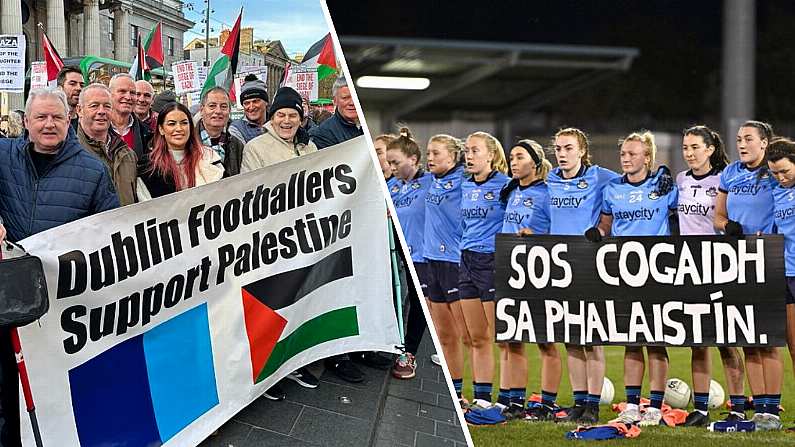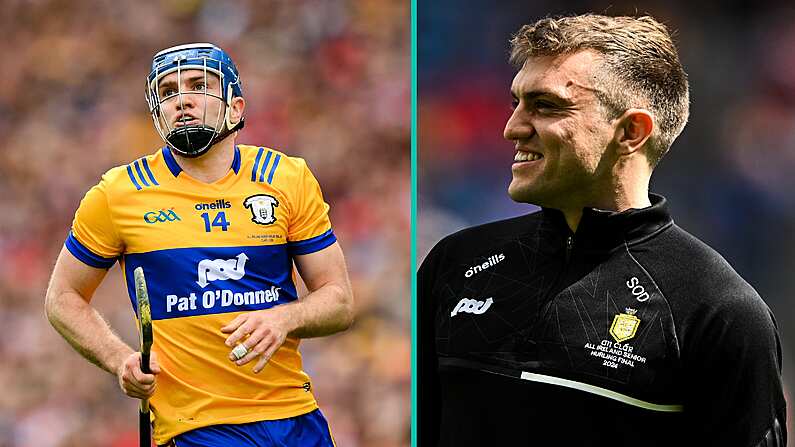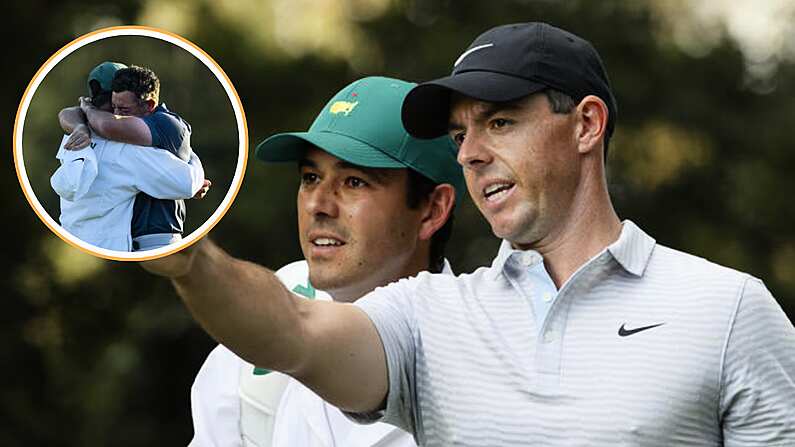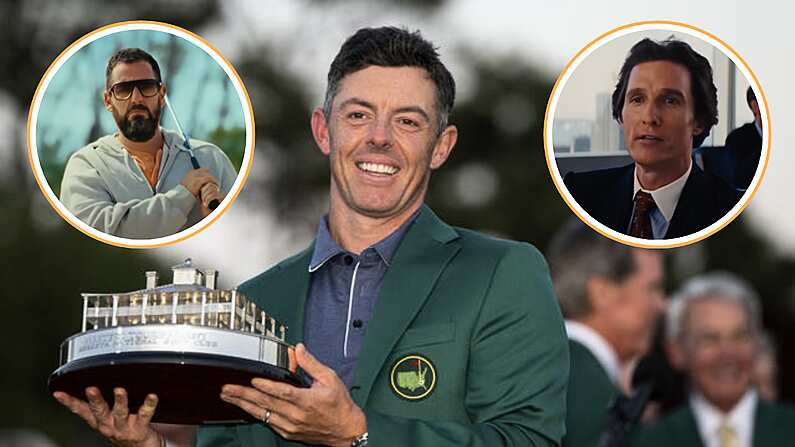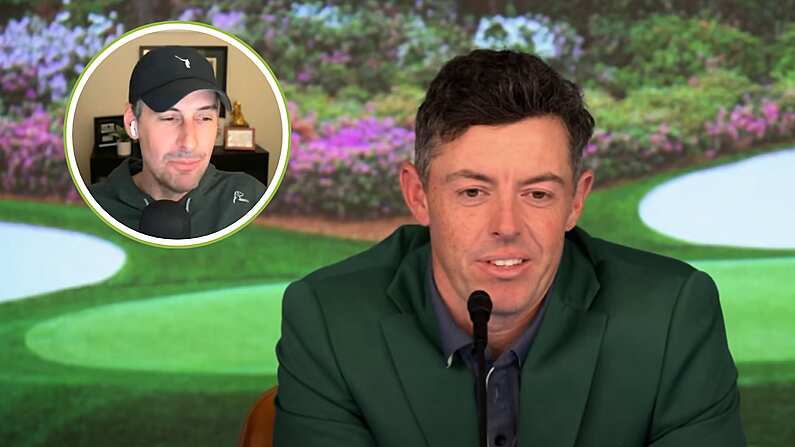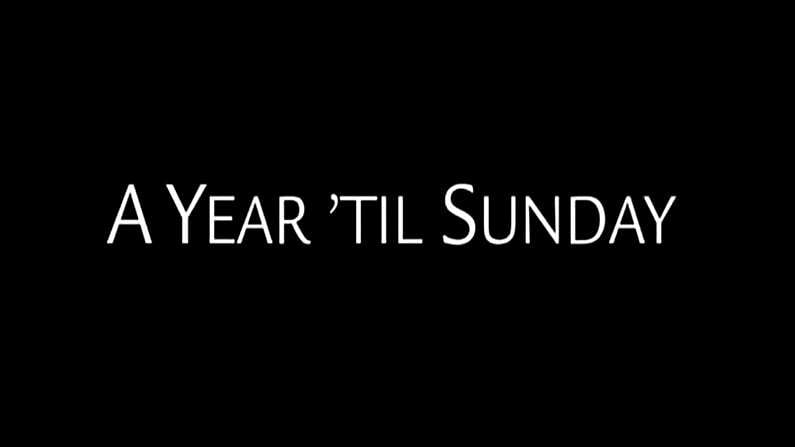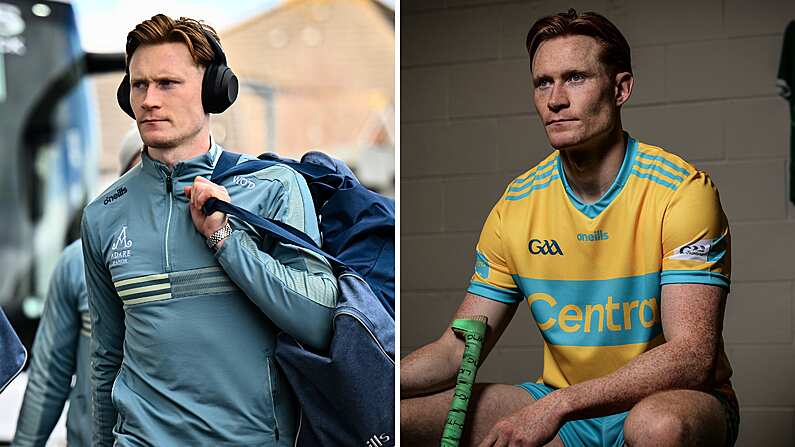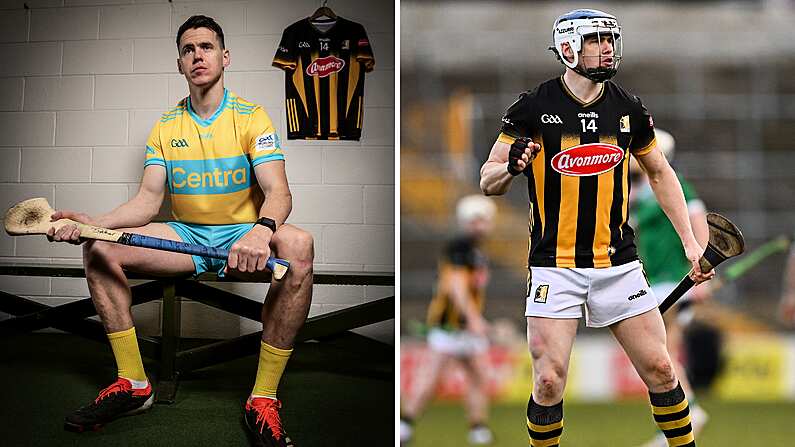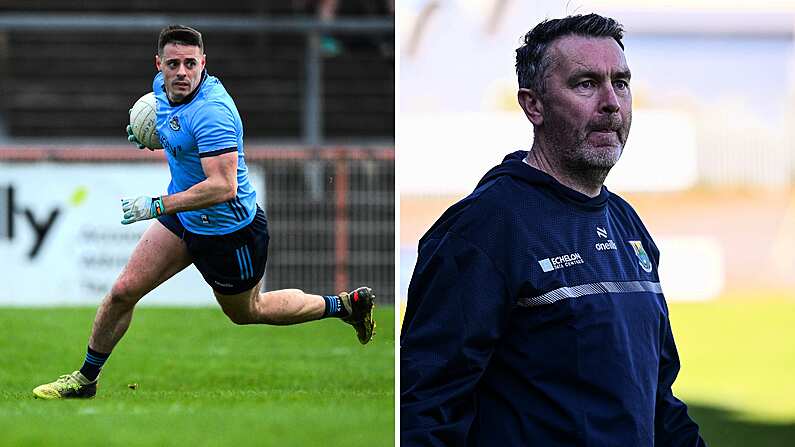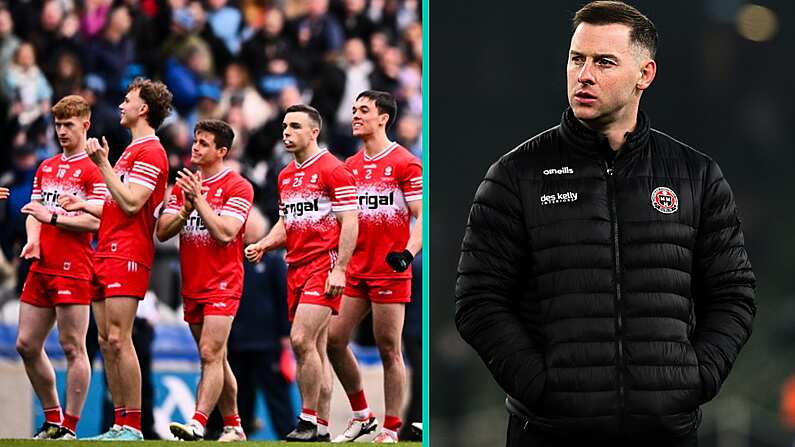Over the past 13 years, the Dublin senior men’s footballers have given me some of the greatest days of my life. From Stephen Cluxton’s dramatic free vs Kerry in 2011 to Paddy Small’s deflected goal against the same opposition twelve years later, most of the last thirteen years has felt like a fantasy for those of us lucky enough to spend many special days on the steps of Hill 16
Likewise, on the ladies’ side, Dublin’s sensational four-in-a-row between 2017 and 2020 was nothing short of special, nor was the tenacity that they showed to bounce back and reclaim their crown following the Brendan Martin Cup’s two-year sojourn to the Royal County.
Yet, the proudest that many Dublin fans, including myself, have ever felt about our football team was on a day last January when the ladies team lost by five points to Kerry, before a ball had even been kicked.
"Sos cogaidh sa Phalaistín," which roughly translates to “Ceasefire in Palestine”, read the banner held by Mick Bohan’s players ahead of throw-in at Parnell Park on 20th January. Dublin captain Carla Rowe and vice-captain Leah Caffrey were front and centre behind the banner. The duo were joined in spirit by teammate Sinéad Wylde, who was injured that evening but is a vocal supporter of a ceasefire.
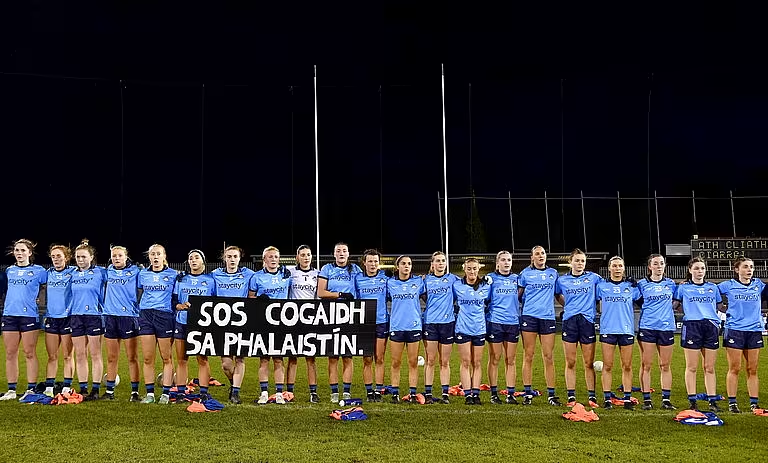
20 January 2024; Dublin players hold a banner showing solidarity with Palestine during the national anthem before the 2024 Lidl Ladies National Football League Division 1 Round 1 fixture between Dublin and Kerry at Parnell Park in Dublin. Photo by Sam Barnes/Sportsfile
Wylde explained how the idea for the banner came about.
“The idea came from a smaller group. But the support for it obviously came from the whole team. We wouldn't have gone ahead with it if there wasn't an overwhelming support from the group. Everyone who stood behind the sign that day was in full support of it, which was brilliant. We wanted to make a stance for Palestine and against the atrocities that are going on.”
We pride ourselves a lot on being brave as a team and I guess that was something brave to do. We hope there'll be a ripple effect throughout different sporting teams in Ireland and across the world. It was obviously a bit of a risk in terms of backlash, but we definitely stand behind it and if we were to go back to that day, we'd do it all over again.”
According to Dublin legend David Hickey, the Dublin ladies were the first sports team of active players anywhere to call for a ceasefire.
“They were the first team of current players anywhere in the world to stand up for the Palestinians. It had not been done anywhere else. I’m very proud of them, they’re the team of the year.”
Hickey is the driving force behind the Dublin Footballers for Palestine campaign, alongside eight-time All-Ireland winner Michael Darragh MacAuley.
Just like Hickey, MacAuley is extremely aware of the influence that sportspeople can have on the public at large:
Sometimes, maybe, it’s harder to put your hand up first, so I was really proud of the girls to make that plan. Can you imagine the pressure now that would be put on the government if every single GAA team did that? Can you imagine if the Wicklow footballers got the whole of Wicklow talking about Gaza? If the Galway hurlers did it, they’d get the whole of Galway talking about it. If the Donegal footballers did it, they’d get the whole of Donegal talking about it. if the Waterford camogie team did it… and so on and so on. Then we would have a whole national conversation there. We’d have people who are really engaged in what's going on. The government would just have to listen to us."
'Dublin footballers support Palestine'
More than any other sporting team in Ireland, the Dublin footballers, men and women, have consistently shown bravery on this issue.
Since the Israeli army began its bombardment of Gaza after the events of October 7, members of the Dublin football team, past and present, have been some of the most visible Irish sporting personalities at protest marches. To name a few: the likes of Hickey and MacAuley, as well as a whole host of past and present Dubs stars, such as All-Ireland winning captain Tommy Drumm, Michael Fitzsimons, Martha Byrne, Jack McCaffrey and Killian O’Gara.
Gotta love the Dubs pic.twitter.com/9D1QHmlqA4
— Joe Brolly (@JoeBrolly1993) December 16, 2023
Hickey has been the galvanising force behind Dublin Footballers For Palestine.
“We were just appalled by what was going on in Palestine and it needed to be brought to a wider public. As Dublin footballers, we have a very large voice in the news and we should use that voice to get as much publicity to force our government to be more resilient in their approach to Israel,” explained Hickey.
The support that match-going Dublin fans have shown for Hickey, MacAuley, Wylde and co. should come as no surprise. Palestinian flags have been a fixture on Hill 16 for Dublin matches down through the years.
Last Saturday evening, Croke Park lit up for Gaza in the 20th minute of Dublin's league match against Kerry.

24 February 2024; Supporters use the torch on their phones to shine a light for hope during 'Light Up Croke Park for Peace in Palestine' in the 20th minute of the Allianz Football League Division 1 match between Dublin and Kerry at Croke Park in Dublin. Photo by Ray McManus/Sportsfile
MacAuley said Dublin supporters have expressed their 'fondness' to him about the position that many prominent players have taken on this issue.
“I've spent many a day on Hill 16 myself. I've seen many a Palestinian flag being raised. I think that's a credit to people who kind of understand the issue and understand what we've been through in days gone by, and what the Palestinian people are going through at the moment. So, I think it shows a great awareness from Dublin supporters, and it’s not always just Dublin supporters. But it’s been great to see on Hill 16 over the years. I know that there's a lot of Dublin supporters who have taken to the streets who have spoken to me with great fondness about the stance that has been shown by Dublin GAA players over the last while."
Four core aims
The Dublin Footballers for Palestine campaign was launched with four core aims:
- To call for an immediate ceasefire in Palestine.
- To put pressure on the Irish government to recognize Palestine as a state. (Although both houses of the Oireachtas passed the motion to recognise the State of Palestine in 2014, the Government has yet to endorse that decision.
- To encourage the Irish government to support the South African case at the International Court of Justice on genocide.
- To help ensure that the BDS (Boycott, Divestment, Sanctions - a nonviolent Palestinian-led movement promoting boycotts, divestments, and economic sanctions against Israel) is taken seriously. The Dublin Footballers for Palestine also wish to see Israel face bans from FIFA and by the Olympic Committee.
On Monday 29 January, an Instagram post uploaded by the account @muslim stated that ‘If you went to one funeral a day for the children killed in Palestine, it would take 27 years to attend all of the funerals.’
Between October 7 and December 4, more than 6,600 Palestinian children were killed by Israeli forces in Gaza according to the government’s media office. The number has since surpassed 12,000. This week, the latest figures for the death toll in Gaza, provided by Al Jazeera, exceeded 30,000. At least one out of every 100 children in Gaza has been killed by Israeli attacks.
Harrowing, inhumane and utterly preventable.
It is for these people, and those who are enduring devastation and famine-like conditions in Rafah and elsewhere in Gaza that the Dublin Footballers for Palestine are campaigning for.
'You can't say you didn't know'
Some sports fans will undoubtedly look at the work of the Dublin Footballers for Palestine and revert to the age-old argument that we must ‘keep sports out of politics’. This, however, is simply not an option, according to Wylde:
“Obviously there's always going to be some people who think that sport and politics should be separate entities, but given the privileged position we're in to have some influence and visibility in society, I think it is important that when there's something you really believe in that you stand up and be brave. if you're silent in these kinds of situations, you're kind of implicit to what's going on, so we really felt it was quite important for us to stand up and make our stance and hold that poster before the game.”
It’s perhaps only right that, given his contribution to the movement, David Hickey gets the final word here:
“Sport has a huge voice and it has a huge obligation to use that voice to prevent things like genocide. There's plenty of examples of sportspeople standing up for human rights and it’s our obligation to use that voice to do it. I'll leave you with a quote, by William Wilberforce, that perfectly sums up my perspective. He made a speech in Parliament in England in 1791, defining the depravity of slavery. He ended up with these words:
‘You may decide to look the other way, but you can't say you didn't know.


